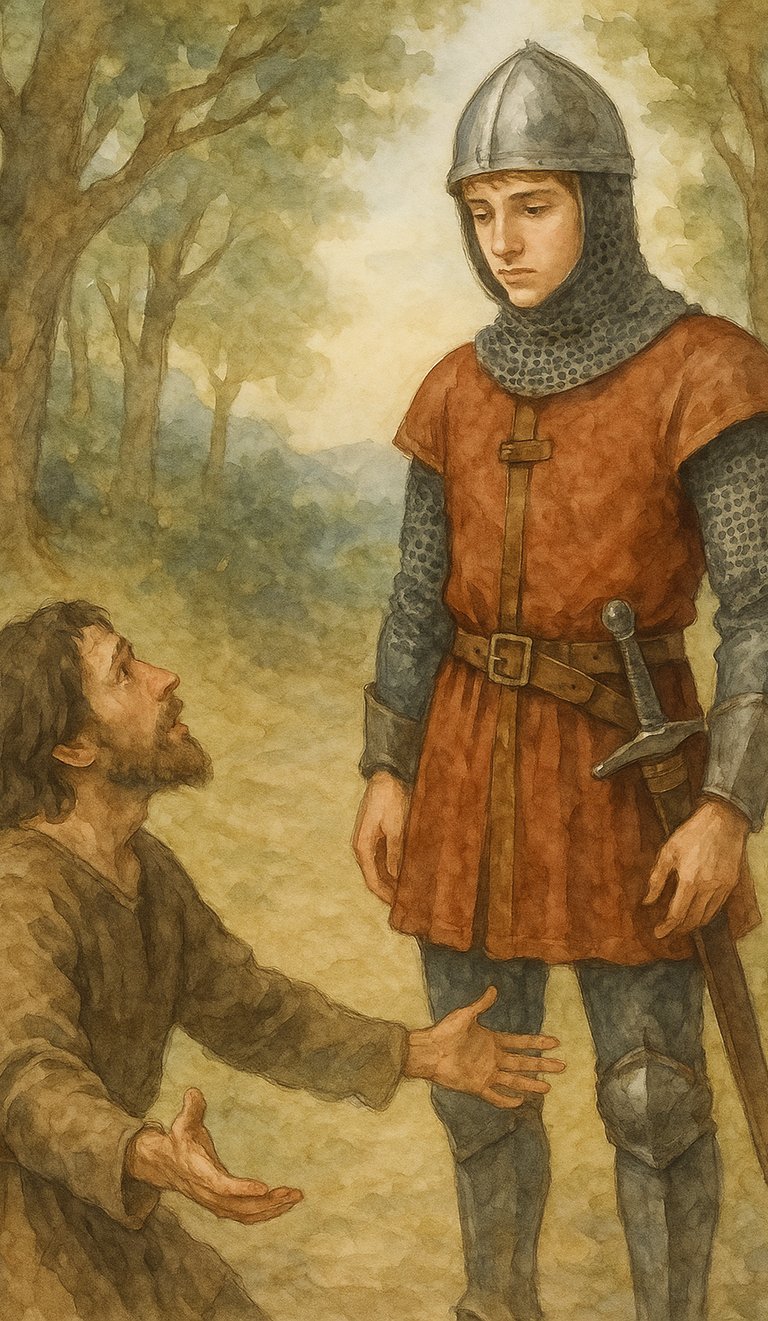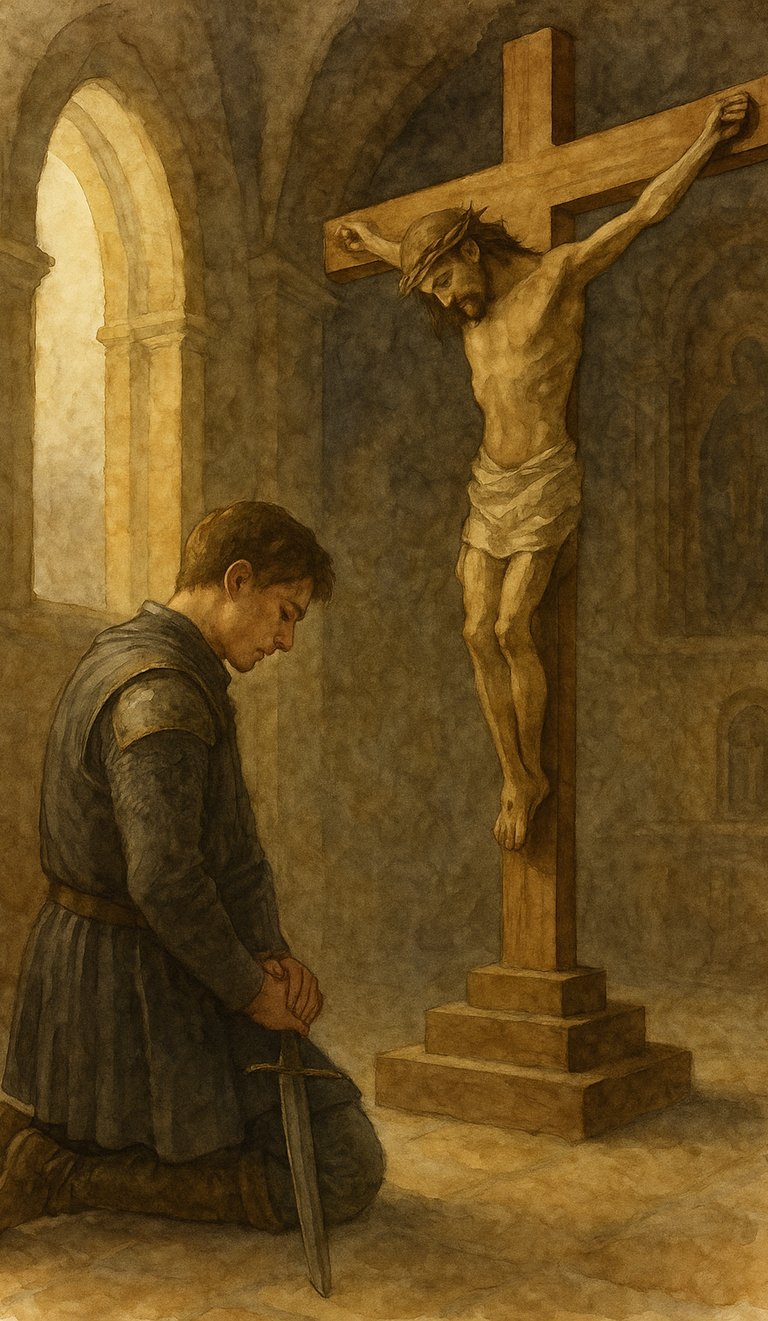The Sword That Forgave: St. John Gualbert and the Cross of Mercy
A Reflection on Pain, Forgiveness, and Grace
Halo & Light Studios
7/11/20253 min read


Click Link for a reel of Daily Dose of Saints and Faithful Art:
https://youtube.com/shorts/nhpxgpQMZ-M?feature=share
In the violent, honor-bound world of 11th-century Florence, few conversions are as dramatic—or as luminous—as that of St. John Gualbert. He was a nobleman formed in the faith, a warrior shaped by grief, and eventually a saint forged by mercy. Born around 985 into a prominent Florentine family, John received a solid Christian education. He was trained in virtue—but like many of us, he was drawn away by the glitter of the world: status, power, and prestige. The truths he had learned in childhood were eclipsed by the passions of youth.
Then came tragedy. His only brother, Hugo, was murdered in a political feud. The pain was unbearable. And the world gave John only one answer: revenge. Blood for blood. John was ready. Sword in hand, he waited for the moment to strike. That moment came—on Good Friday. While riding through a narrow pass, John came face-to-face with his brother’s killer. The man, defenseless, dropped to his knees and stretched out his arms in the form of the Cross, silently pleading for mercy.
In that instant, something greater pierced John's heart than any sword ever could: the image of Christ crucified. The man before him had taken his brother’s life—yet he now mirrored the One who gave His life for all. John’s hand trembled. His sword lowered. And in a moment of astonishing grace, he forgave.
Overwhelmed, John rode to the nearby Benedictine Abbey of San Miniato and fell before the crucifix in repentance. According to tradition, the crucifix bowed its head—a divine sign of approval. That gesture marked the beginning of a life wholly transformed.
Pain and forgiveness are twin brothers. They walk side by side. Pain clouds our vision, blinds us with anger, pride, and grief. Like John, many of us wrestle with forgiveness—not because we’re unwilling, but because we’re wounded. We tell ourselves: “I’ll forgive… just not yet. I’m not ready.” We want to be sincere. We don’t want to speak words we don’t mean. But somewhere along the way, many of us have mistaken forgiveness for a feeling.
The Church, however, teaches something far more liberating: Forgiveness is not a feeling. It’s a decision—an act of the will—made possible only through grace.
“It is not in our power not to feel or to forget an offense; but the heart that offers itself to the Holy Spirit turns injury into compassion and purifies the memory by transforming hurt into intercession.”
— Catechism of the Catholic Church 2843
Wounds run deep. And often, the pain we carry becomes a kind of armor—protective, familiar, even justified. But that armor can also shut out God. It isolates us from healing.
A priest once said to me, “You may not feel forgiving, but you can choose to forgive—and keep choosing. If you’re praying for the person, you are already forgiving.” That’s the kind of courageous mercy John Gualbert lived. His forgiveness wasn’t polished or sentimental. It was hard. Raw. It was his Good Friday.
After his conversion, John didn’t retreat into seclusion. He went deeper—into the silence of the mountains, into the soul of the Church. In the wooded solitude of Vallombrosa, he founded a monastic order rooted in prayer, penance, and reform. His community followed the Rule of St. Benedict, embracing simplicity, silence, and sacrificial love.
But John was no passive monk. He rose against the rampant simony corrupting the Church—where sacred offices were bought and sold like commodities. He challenged unworthy clergy and stood firm in the face of persecution. His fiery zeal, once bent on vengeance, was now poured out in love for the Bride of Christ.
He died in 1073, canonized just 120 years later, and is now venerated as the patron of foresters, park rangers, and all who struggle to forgive.
At the Foot of the Cross
If forgiveness feels impossible—go to where John went: the foot of the Cross.
Kneel there. Bring your wounds. Bring your anger. Be honest with your hurt. But lift your eyes to Jesus crucified, and hear Him whisper: “Father, forgive them, for they know not what they do.” (Luke 23:34)
There is no healing without this Cross.
There is no peace without this surrender.
Forgiveness is not pretending the hurt didn’t happen. It’s not approval of evil. It is freedom. And it begins with a whisper of grace: “Jesus, I choose to forgive. Help my heart to follow.”
You don’t need to be a saint to start forgiving.
But if you want to become a saint, you must start forgiving.
“God forgave me when I was unworthy. How can I withhold mercy from my brother?”
— St. John Gualbert


